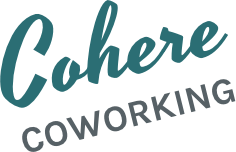Chapter 5 from the newsletter.
In the fast-paced world of remote work, we’re all too familiar with the constant pressure to be productive, stay on top of emails/slack/asana, and move at lightning speed. But what if slowing down—embracing a counterintuitive approach called “slow work”—could be the key to well-being in your remote career?
“Slow work” isn’t about doing less; it’s about doing better. It’s inspired by the “slow movement,” which encourages a more thoughtful, mindful approach to everyday life—whether it’s food, travel, or work. In our remote work culture, where boundaries between personal and professional time often blur, the fast-paced grind can lead to burnout, anxiety, and a lack of fulfillment.
Instead of trying to squeeze in more tasks or god forbid-multitask, slow work encourages a deep focus on the quality of your output. It involves setting aside time for uninterrupted, single-tasking work where you can dive deep into projects that truly matter. When you work slower, you reduce the noise and distractions, leading to better decision-making, more thoughtful creativity, and stronger, more meaningful contributions to your work.
Why “Slow Work” Matters for Remote Workers
As a remote worker, you’re often in charge of your schedule and environment. This autonomy is empowering, but it can also lead to the temptation to overwork or feel like you have to be “always on.” Embracing slow work could help you recalibrate. Taking time to reflect and nurture your well-being can give you a renewed sense of clarity and purpose, which are often lost in the rush of daily tasks.
The Benefits You’ll Experience:
- More Focus: Slow work encourages sustained focus on the tasks that matter most, eliminating distractions.
- Increased Creativity: Slowing down allows your brain to make more meaningful connections, which sparks innovative ideas.
- Better Work-Life Balance: Slowing down makes it easier to set boundaries between work and personal time.
- Improved Mental Health: Reducing the pressure to be constantly productive fosters a healthier work-life mindset.
How Coworking Spaces Support a Slow Work Lifestyle
While working from home offers flexibility, it can also make it difficult to set boundaries and manage distractions. This is where coworking spaces can be a game-changer. It is very effective to get ready for work, leave the house and come to Cohere to work. Here’s how:
- Dedicated Space for Focus: Cohere has areas for deep, uninterrupted work—giving you the time and space to focus on meaningful tasks without the usual distractions of home life. Book the Sonder, Oasis or Caravan rooms.
- Separation of Work and Personal Life: Being physically removed from your home can help create clear boundaries between your work and personal time, allowing you to embrace slow work more fully.
- Never Eat at Your Desk: A coworking space also offers the added benefit of built-in lunch buddies. Lunch is the BEST time with everyone gathering around our huge table to recharge over non-work talk.
Recommendation 1: Book – “Slow Productivity” by Cal Newport
Cal Newport’s Slow Productivity presents a compelling case for working less, with more focus, to achieve higher quality work. Newport offers practical strategies for applying a slower, more deliberate approach to your professional life, especially valuable for remote workers who struggle with finding balance. Check out “Slow Productivity” by Cal Newport here.
Recommendation 2: Article – “Unlocking Meaningful Work Through Slow Productivity“ Global Leaders Institute for Arts Innovation
Ultimately, slow productivity is about achieving better outcomes through intentional effort rather than working faster. This mindset shift can foster long-term success in today’s competitive world. Read the whole article.
By embracing slow work and leveraging environments like Cohere, you can reclaim your time, creativity, and focus. So next time you’re feeling overwhelmed, try slowing down and see how it transforms your productivity and mental well-being.
Love, Angel
ps. Cal Newport’s book Digital Minimalism change my life.
